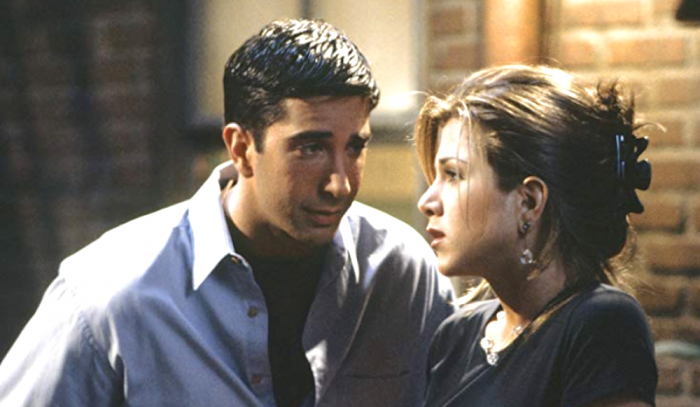What makes and maintains a vibrant relationship?
Not just a relationship for the sake of being in a relationship, but one that enhances your already quality existence.
We have seen the memes, we have heard the podcasts, we have trolled social media, and we know that self-love—true and authentic love for oneself—is vital. We can only be a part of two once we have a solid grounding in who we are, what our boundaries are, and what we want.
Unfortunately, we still live in a culture that sways more toward romanticising toxic behaviours that can cause a great deal of pain and unhappiness.
These are six behaviours that are simply not normal and that will not only corrode your relationship, but destroy your self-esteem in the process:
1. Do you come with a remote?
Control, control, control. Being told who you can be friends with, where you can go, or simply what you can do is toxic.
No one has the right to place bars around your freedom or tell you what you need to be doing instead of allowing you the space to continue living your life the way you want too. This doesn’t mean that you shouldn’t be considerate. However, when your partner is keeping track of your every move, deciding who you spend your time with or what you spend your time on, it’s a telling sign of a deep insecurity within them.
This is not yours to fix by adapting your behaviour, and if you find yourself having to lie to your friends and family about it, you are compromising yourself and the life you deserve.
What should you do?
Be open, be honest. This is not a novel concept, but you would be surprised how this simple method of communication lacks in so many relationships.
“Keeping the peace is better than rocking the boat.”
No.
Actually, hell no.
Talk to your partner about how you feel constricted and what they feel insecure about, and then enforce your boundary if necessary. You won’t be inconsiderate, but you won’t be controlled either.
2. I’m unhappy; you should be too.
Love is a drug, and in the beginning it’s all euphoric highs. But what happens when we come down? How we deal with the lows is where we see the age-old adage in action: “a relationship is work.”
The difference here is that sometimes the relationship is in need of work, and sometimes your personal development is in need of work. We are not responsible for how another person chooses to feel; we can be a shoulder to cry on, but ultimately, we need to process and then decide that happiness is more important to us than a negative mindset.
What should you do?
If your partner is negative all the time, feeling stressed, feeling inadequate, feeling the pressures of societal constructs, and you have done everything in your power to try and uplift this person, it’s time to press the pause button. This is the time for space and the time for reconnection to self.
Meditation, exercise, diet, following a passion, or seeking your purpose are all fuels for the soul, and your partner needs to focus on self in order to get back to that space of innate harmony within themselves. If this is you, the same applies to you. We are responsible for our own emotions.
3. Jealousy is the new black.
Jealousy is no way to show someone how much you love them. There are relationships that thrive on this kind of behaviour, and all it speaks to is a devastating self-esteem.
That one time your partner spoke to someone at a party and you went home in a rage is not an endearment of love; it is your way of not loving yourself. Be aware that it is a reflection of what you feel is missing within yourself.
Someone grounded in who they are, who has befriended themselves, is not going to entertain the negative emotion of jealousy. Jealousy, as with all emotions, is natural to feel, but we always have a choice of whether or not to entertain it. If it is a negative emotion and you don’t just observe it and let it go, it can quickly spiral into something a lot more destructive.
What should you do?
Work on yourself! When you look in the mirror, do you unconditionally, unequivocally love the person staring back at you? If the answer is no, that’s where you start—not lambasting your partner.
Are they going to make you love yourself more? No! This is not healthy, constructive behaviour or a way to express love. Erase that notion from your mind.
Naturally, jealousy and trust walk hand in hand, and if you are in a relationship where trust is a problem, then it is not always about you not loving yourself. However, and in most cases, if something is irking you about your partner’s behaviour with others that is innocent, you can bet you need to delve more into why you don’t have a solid base for yourself.
4. Passive-aggressive behaviour.
Are we mind readers? The world would be a great deal more interesting if we were. But sadly, we are not.
Wasting your time denying issues, avoiding conflicts, or subtly hinting is going to get you nowhere. Purposefully angering your partner in an effort to feel justified in speaking out is not the way to handle it. This will tell you how strong your relationship is when it comes to communicating.
What should you do?
Create a channel that is a safe space to air your frustrations in a loving and beneficial way. This isn’t always possible in an angry state, but nothing will be actively and positively resolved if you aren’t able to be vulnerable in how you are feeling and sharing that with your partner.
If you are angry, instead of spewing hate from the depth of your soul, walk away, calm down, and come back when you are in a calmer state.
You are on the same team. Support is part of the relationship package, or at least it should be, and even if ideas or opinions are conflicting, that space needs to be one of openness and safety.
5. Let’s buy our way out of our problems!
People actually think that this works. There’s a relationship issue, and they feel the best way to get out of it is to buy their way out of it. A gift is going to give you only one thing: a respite for a short amount of time, and it will ultimately cause resentment. Your underlying problems are still going to be there, festering in materialistic fancy.
What should you do?
Stop focusing on what the two of you have materially and get back to what the two of you have mentally, spiritually, and emotionally. Where does it hurt? And how do you begin working on feeling more connected on those foundations rather than crying yourself to sleep in your new Egyptian cotton sheets? Maybe the relationship needs a bit more affection, maybe it needs a bit more attentiveness, or maybe it needs a bit of individual space.
6. Stop advocating in toxic conversations.
I remember when “He’s Just Not that Into You” came out and everyone felt liberated enough to speak openly with their friends and families. When the trend was to be honest by what we saw and felt.
If someone was being mistreated, we learnt that it was perfectly alright to tell them what we were seeing despite how uncomfortable it can be. We supported their decisions but at the same time reminded them of what they deserve—what we all actually deserve, healthy relationships.
What should you do?
Stop telling people what you think they want to hear. If something is toxic, it’s toxic. If someone speaks to you about any of these behaviours, start promoting conversations that add value and if your advice is asked for, give it honestly and be of benefit to each other.


 Share on bsky
Share on bsky





Read 10 comments and reply